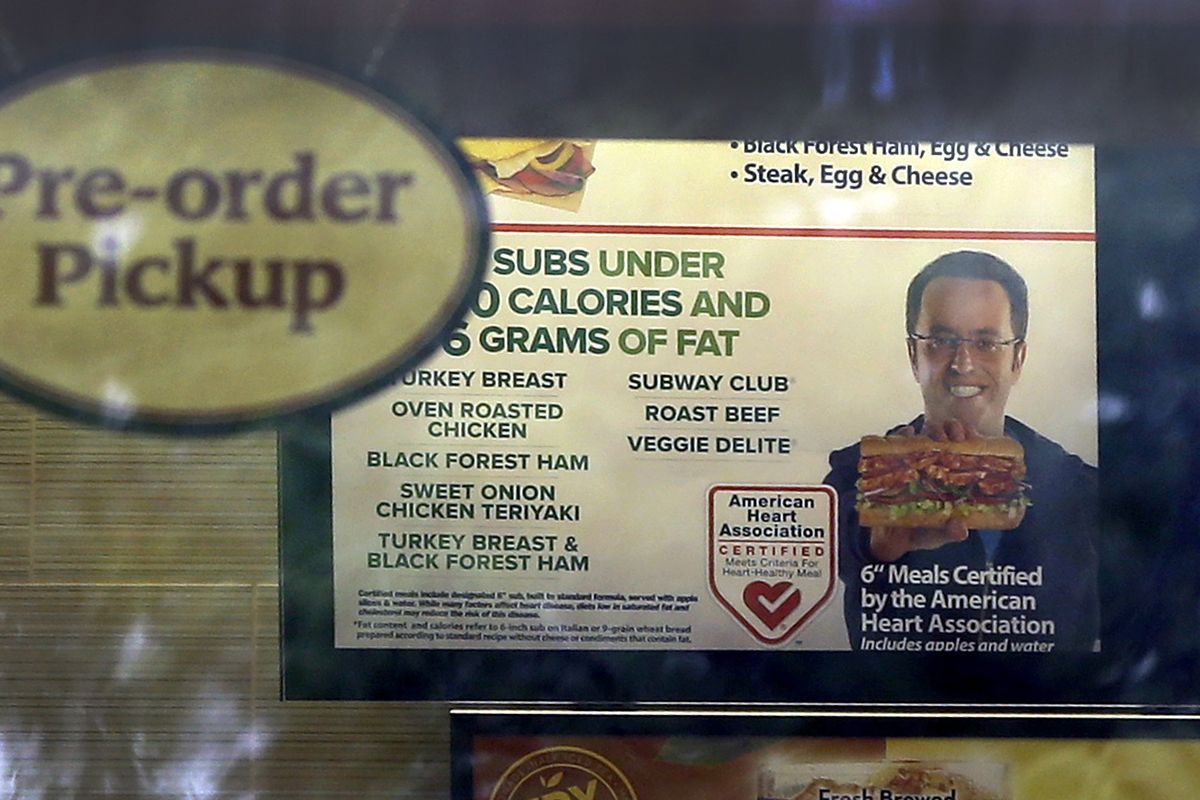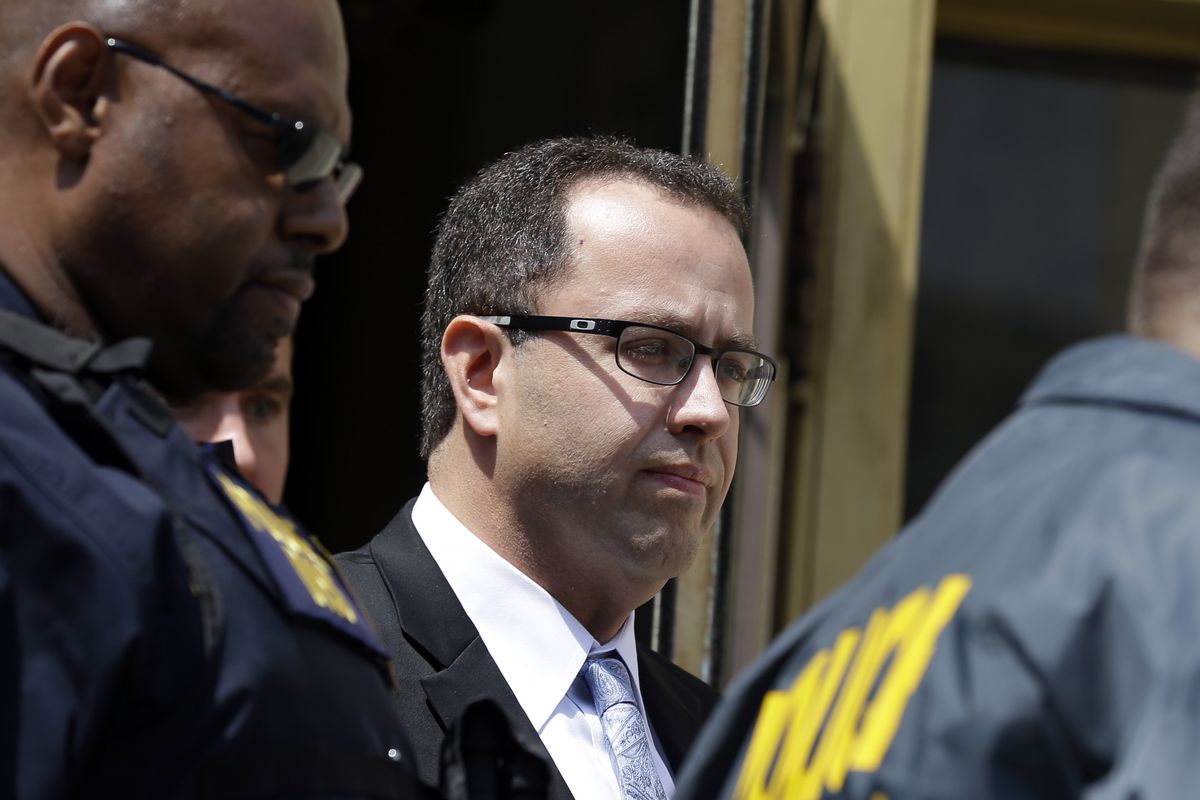Ex-Subway spokesman admits exploiting kids
An image of Subway restaurant former spokesman Jared Fogle is seen July 7 on a menu board hanging inside one of the chain’s locations in St. Louis. (Associated Press)
For more than a decade, Jared Fogle was the everyman who touted Subway sandwiches and represented a relatable role model for Americans struggling to lose weight. Now, he’s facing up to 12 1/2 years in prison for his involvement in a yearslong scheme to sexually exploit children; he’ll have to pay $1.4 million in restitution to 14 victims; and his wife is divorcing him.
Between 2010 and 2013, Fogle, while traveling in New York City, paid to have sex with two teenage girls, according to a criminal complaint. The incidents occurred at the Plaza and Ritz Carlton hotels, where Fogle was staying, often for business travel.
“Let’s call this what it is,” Josh J. Minkler, U.S. attorney for the Southern District of Indiana, said at a news conference Wednesday afternoon. “This is about using wealth, status and secrecy to illegally exploit children.”
Fogle admitted Wednesday that he knew that Russell Taylor, a former executive at Fogle’s Jared Foundation, which focused on inner-city kids, was sexually exploiting a 14-year-old girl in 2011, according to prosecutors. Instead of stopping the abuse, prosecutors said, Fogle chose to “receive and repeatedly view” the pornography Taylor produced of the girl. Taylor targeted a total of 12 children between ages 9 and 16, none of whom knew they were being filmed, prosecutors said.
Fogle, 37, will plead guilty to one count of distribution and receipt of child pornography and one count of traveling to engage in unlawful sex acts with minors, according to documents released Wednesday by federal prosecutors.
Fogle appeared Wednesday before a federal judge to hear the charges and was released on home detention with GPS monitoring.
The public knows Fogle’s back story well – how he began as a 425-pound Indiana University student, dropped more than half his body weight on a strict diet of Subway sandwiches, and landed a job as the chain’s top pitchman. He began appearing in Subway commercials in 2000, after the story of his dramatic weight loss appeared in Men’s Health magazine, and he soon found himself at the center of one of the nation’s most successful and enduring advertising campaigns.
Fogle became crucial to Subway’s marketing. According to AdAge, sales fell 10 percent after ads featuring him briefly stopped airing in 2005. He started his foundation to fight childhood obesity.
The “before and after” images of Fogle at his highest weight and after his Subway diet were a “very positive association” for the brand, Ira Kalb, assistant professor of clinical marketing at the University of Southern California Marshall School of Business, told the Los Angeles Times last month.
Shortly after the announcement, Subway said on Twitter that it considered Fogle’s actions “inexcusable” and that they “do not represent our brand’s values.”
The restaurant chain said Tuesday it had formally ended its relationship with Fogle.
In a statement, Fogle’s attorney, Jeremy Margolis, said his client would plead guilty to all charges and had begun “significant psychiatric medical treatment and counseling” with an expert specializing in sexual conditions “to chart a course to recovery.”
Fogle faces a minimum of five years behind bars and another five years of probation, according to the terms of a plea agreement released Wednesday. As part of the plea deal, prosecutors have agreed to ask for a sentence of no more than 12 1/2 years in prison. A judge will decide Fogle’s sentence.

